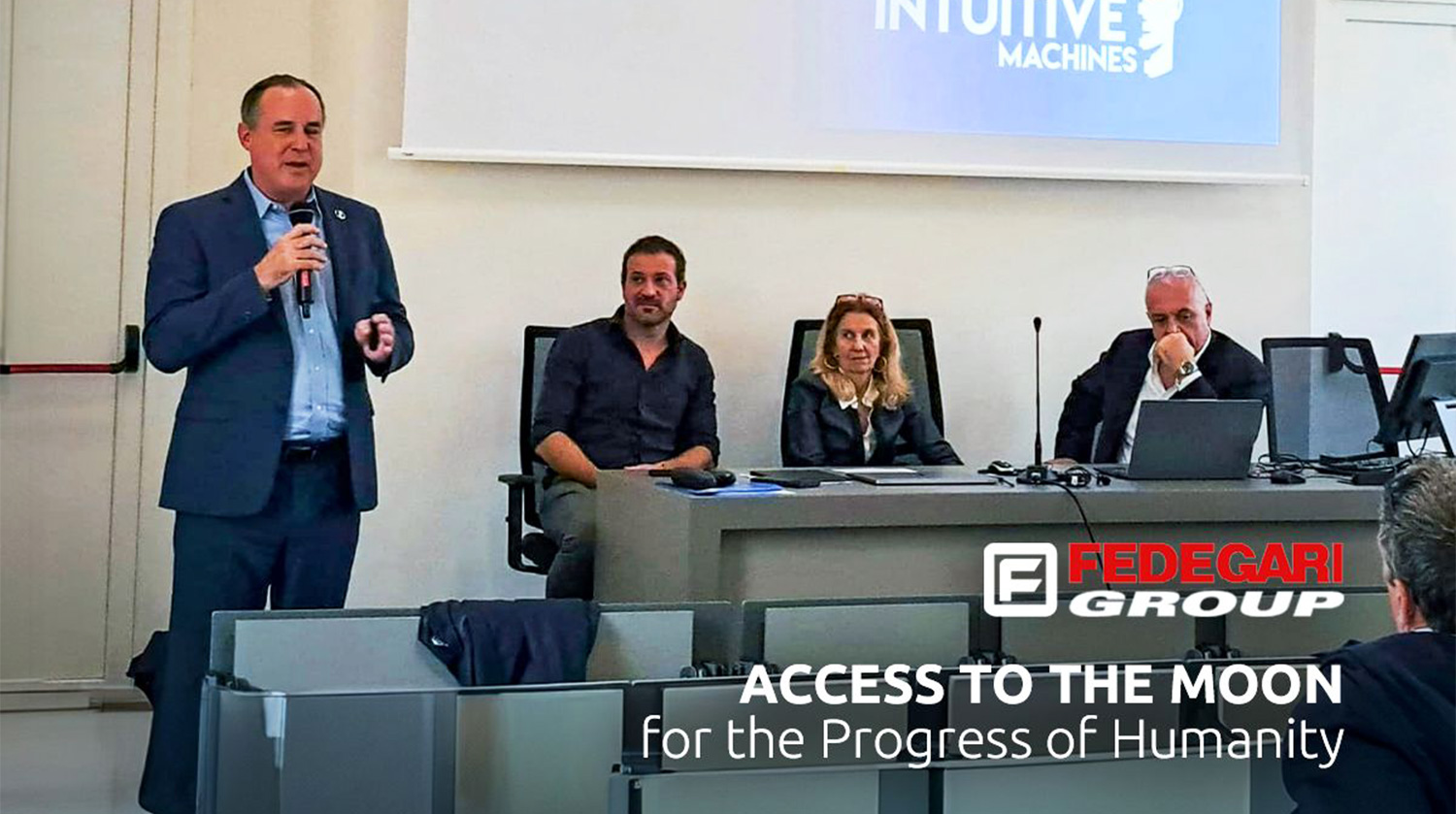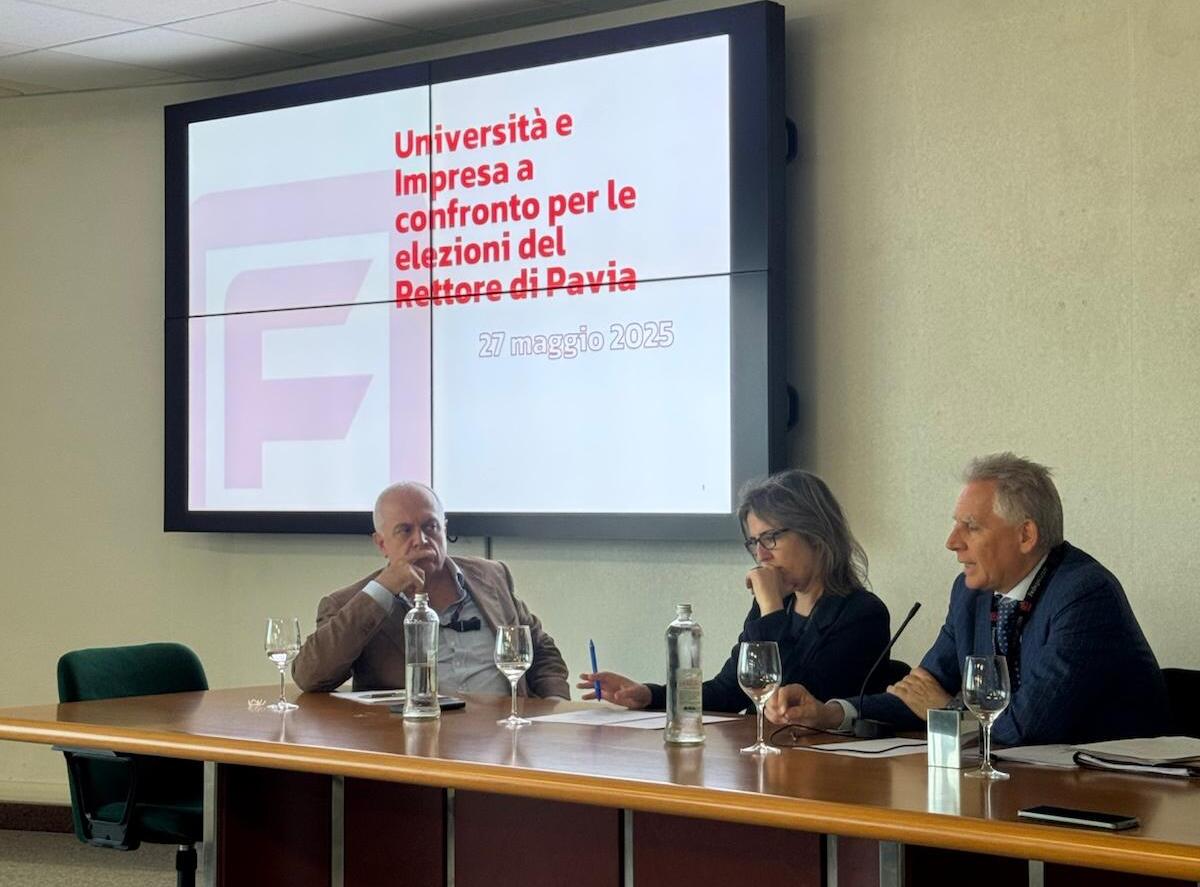It was an open and thought-provoking discussion between the candidates for Rector of the University of Pavia for the 2025–2031 term, held on May 27 in the Fedegari conference hall. The focus was on the collaboration between the University of Pavia and businesses, seen as essential for revitalizing the local area and creating a sustainable innovation ecosystem.
Participants in the debate included Silvia Figini, Professor of Statistics at the Department of Political and Social Sciences, and Stefano Sibilla, Professor of Hydraulics at DICAr – the Department of Civil Engineering and Architecture. Alessandro Reali was unable to attend due to prior commitments but sent a short written statement.
The event was opened by Giuseppe Fedegari, President of the Fedegari Group: “Knowledge has always been central to Fedegari. It is through the development of knowledge and the ability to attract top talent to Pavia that businesses can truly make a difference. Excellence in education and research is what allows us to develop innovative solutions today—solutions capable of competing with major players in the market. We like to think of Fedegari as a community built on scientific and technical knowledge, one that stays ahead of the times and provides the best solutions to people—which, in the pharmaceutical sector, often means helping to save lives.”
For Stefano Sibilla, Professor of Hydraulics at DICAr, priorities lie in strengthening the identity of the University and its surrounding area: “To be attractive, we must highlight the strengths of the Pavia system, where in a relatively small area we have IUSS, various IRCCS institutions, and innovative companies. The contribution of businesses is crucial, particularly with the launch of the Cardano Park, which will promote regional revitalization through technology, knowledge, and expertise. Businesses must be involved right from the design of degree programs. We envision permanent advisory committees to maintain a continuous dialogue and help students enter the job market. We could also explore the possibility of joint patents, which would enhance both the University’s academic excellence and the companies’ capacity for innovation.”
Silvia Figini, Professor of Economic Statistics in the Faculty of Political Sciences, identified her priorities in the areas of education and research:“We must offer our students new opportunities through professional training paths, such as ITS programs, advanced training schools, internships, and LM+ work-study programs in companies. We also need to provide new perspectives by teaching them how to become entrepreneurs—through mentorship programs where business leaders help them bring their ideas to life. Collaboration with companies can also lead to new forms of teaching, such as joint seminars or lectures, fostering a more ‘living’ and profession-oriented learning experience. There is also great potential in co-applying for funding—an underused but highly effective tool for establishing partnerships in applied research and technology transfer.”
In his written statement, Alessandro Reali, Professor of Structural Mechanics at DICAr, emphasized that: “The University can play a key role in coordinating and promoting both knowledge and practical skills, helping businesses stay competitive through applied research and joint projects that facilitate young people’s entry into the workforce. Great opportunities will come from the development of Cardano Park and from greater interaction with the innovation ecosystem already active in the Pavia region—particularly in key sectors such as life sciences, microelectronics, and packaging. What we need is a two-way collaboration where the University invents and companies innovate—based on shared projects and goals. The University must strengthen its tools, from industrial PhDs to business-relevant research projects, from developing high-potential ideas to securing patents.”



